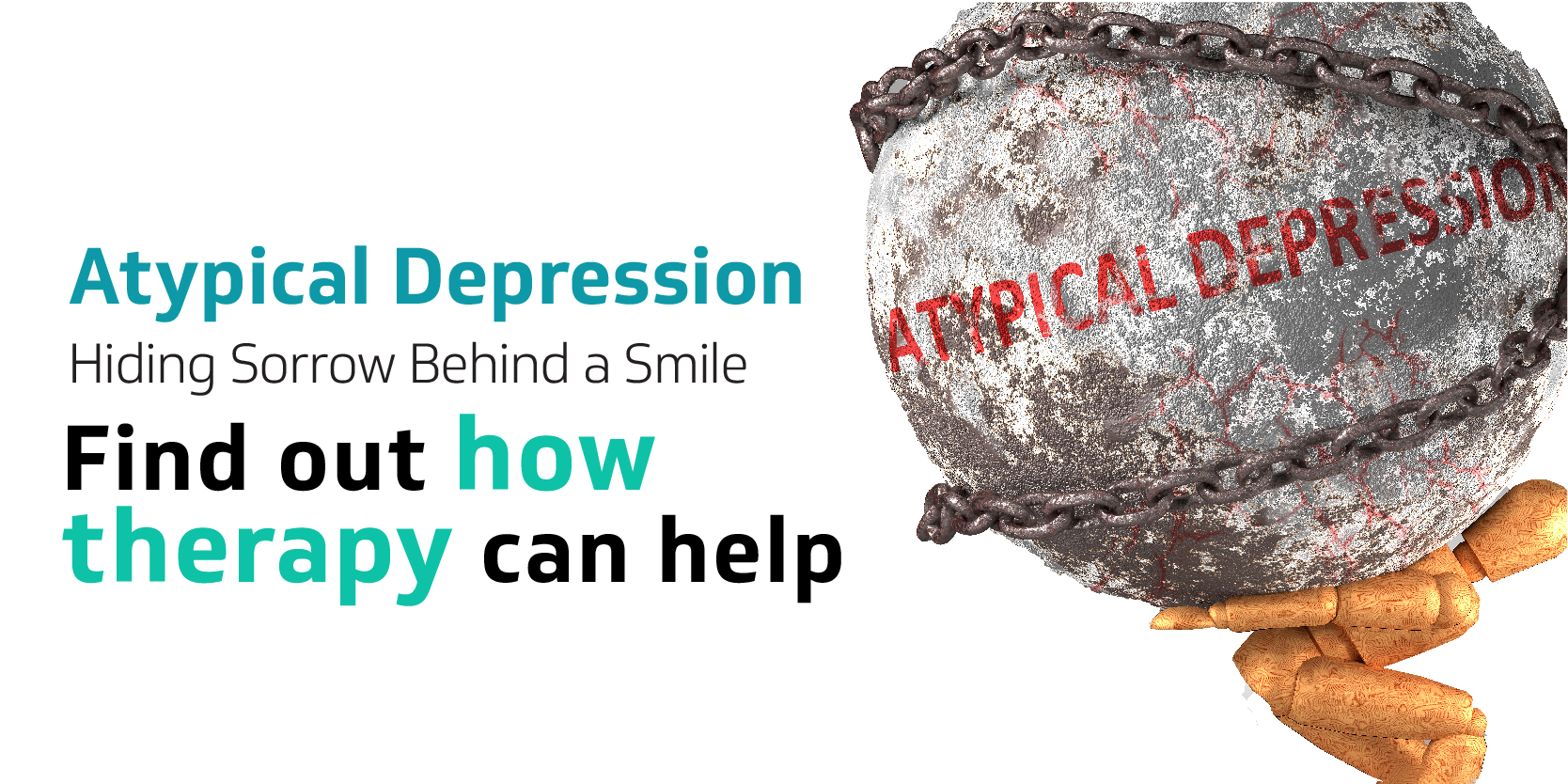
There’s a lot of cultural and social pressure to appear cheerful. We’re constantly told to be positive; to look on the bright side; that we’re not fully dressed without a smile. At work, we may hear that there are no problems, only opportunities. Our friends and family may remind us to count our blessings. Most of us try hard to live up to this pressure, presenting a façade of optimism to the outside world because we don’t want to be labelled spoilsports and killjoys.
But what if, while you’re smiling on the outside, you’re miserable on the inside? You go through the motions, but you feel like you’re not really there. There’s a name for what you’re experiencing: it’s called atypical depression, colloquially known as ‘smiling depression’ – appearing happy to others while internally suffering depressive symptoms. A significant proportion of people who experience depressive symptoms manage to hide their condition quite successfully, but atypical depression is real, serious, and should not be undervalued or remain unaddressed.
This ability to conceal symptoms is so highly developed that most observers suspect nothing. You may appear to have a stable family life; be successful in your profession; be friendly, pleasant and responsive to converse with; be genuinely interested in others. Your mood improves when something positive occurs: an unexpected communication from a long-lost friend, a workplace recognition, a child’s achievement in school or sports. But this boost is momentary. You very soon go back to feeling low.
Concealment is an energy sink that consumes a massive proportion of the sufferer’s inner strength. People with atypical depression are at higher risk of suicide than people with other forms of depression. This is because the mental strength and resolve that enables atypical depressives to hide so effectively also enables them to follow through on suicidal ideation, while people with other kinds of depression may be unable to summon the energy to act.
Even if the person is not suicidal, atypical depression is still dangerous. Overeating and substance use, oversensitivity to criticism, feelings of rejection, heaviness in the arms or legs, and sleeping too much and still feeling drowsy are some of the key symptoms. For some people, the signs and symptoms are so severe that individuals may be disinclined to do even day-to-day activities, and in extreme cases, attempt to take their own lives.
The exact causes of atypical depression are not yet clear, nor do we clearly understand why it manifests differently in different people. It often begins in adolescence, earlier than other types of depression, and may last longer. A combination of factors, including a family history of depression, bipolar disorder or substance use; differences in brain chemistry; stressful life events; traumatic childhood experiences; and environmental stressors, can increase the risk of developing atypical depression.
The relentless focus on positivity naturally leads to the question: I don’t have anything to be sad about, so why am I feeling like this? Atypical depression, like all mental health challenges, can’t be beaten without support and help, but you don’t always realise you have a problem, or don’t think it important enough to talk about. You may feel guilty that you aren’t ‘happy enough’ about all the good things in your life, and ashamed that you aren’t more appreciative.
But it’s important to remember that atypical depression is not the same as a ‘low mood’. Everyone feels ‘off’ once in a while – as we go through life, it’s nearly impossible to be happy all the time, regardless of the never-ending barrage of upbeat messaging we’re subjected to. The difference lies in how long the feelings last, and how long the opposite feeling of happiness lasts. Is your ‘base state’ low with occasional, very brief bursts of joy in response to specific positive events? Or is it general contentedness with occasional low periods in response to specific unhappy events?
Regardless, the best thing you can do is consult a qualified mental health professional who can help you work through your thoughts, feelings and emotions. Recognising and accepting one’s condition is the first step, and is often the trigger for people with atypical depression to redirect their inner strength towards breaking the cycle, seeking help, and recovery rather than concealment. Rediscovering a sense of purpose and meaning in life is critical to overcoming atypical depression. Psychotherapy, and Cognitive Behaviour Therapy (CBT) in particular, can be effective in learning to change thought patterns and behaviour.
Psychotherapy can help us understand ourselves, channel our energies in the right direction, and find ways to contribute meaningfully to the world. The assurance that our lives matter, that we are making a difference, gives us meaning and purpose. The famous Russian author Fyodor Dostoyevsky wrote, ‘The mystery of human existence lies not in just staying alive, but in finding something to live for.’
When we can find something worthwhile to live for, it makes a dramatic difference to our mental health and overall wellbeing, so that the smiles we put on for others truly reflect the fulfilment we feel on the inside.

Ms Trisha Ray
Consultant Psychologist & Special Educator with HealtheMinds. She also consults at RxDx Healthcare.
MA, Clinical Psychology | BEd, Special Education | CBT Certification, Beck USA | RCI Registered
Trisha is highly skilled in Psychological Consultation, Assessment (for ages 17 and under) and Psychotherapy and Remedial Therapy for children, adolescents and adults.
She is available for online and in-person consultation at RxDx Healthcare, Whitefield, Bangalore, or online at HealtheMinds.com and several other platforms.
Schedule a consultation with Trisha.
BOOK VIDEO CONSULTATION